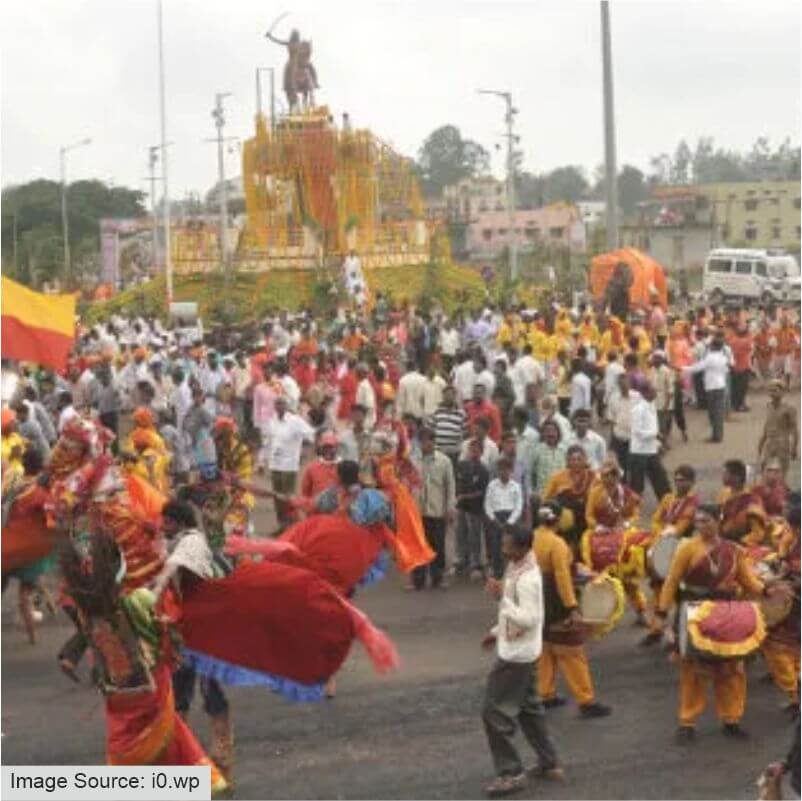Our independence was a culmination of blood shed by thousands. While some got acknowledged in history and have their praises sung, some have been buried and their memories lost to time.
One such figure is Queen Chennamma of Kittur, who fought against the British decades before the Uprising of 1857.
Kittur Chennamma was born on 23 October 1778, in Kakati, a small village in the present Belagavi District of Karnataka. Deviating from the gender norms, she received training in horse riding, sword fighting and archery from an early age.
She married Raja Mallasarja of the Desai family at the age of 15. But Raja Mallasaraja passed away in 1816. This was soon followed by the death of their son in 1824. In the same year, Queen Chennamma adopted Shivalingappa and made him the heir to the throne, much to the ire of the British Empire.
The state of Kittur was under the control of the collector, St. John Thackeray, who didn’t accept Shivalingappa as the legitimate heir to the throne and ordered Chennamma to hand over the kingdom to British rule. Even though the Doctrine of Lapse was not introduced, St. John Thackeray still demanded the reins of Kittur.
Soon, a war broke out between Chennamma and St. John Thackeray in October 1824. Much to the surprise, Queen Chennamma defeated the British and St.John Thackeray met his demise on the battlefield. Two British officers, Sir Walter Elliot and Mr. Stevenson were also taken as hostages.
Queen Chennamma released the hostages under the pretence that Mr. Chaplain (Commissioner) would end the war. However, he returned with more force than ever. During the second battle, two soldiers from her own army, Mallappa Shetty and Vankata Rao, betrayed Queen Chennamma by mixing mud and cow dung with the gunpowder used for the canons. Sadly, Queen Chennamma was captured and imprisoned at Bailhongal Fort where she passed away on 21 February, 1829 at the age of 50.

Queen Chennamma still lives in the consciousness of the residents of Kittur. The Kittur Utsav is held in October or November in the memory of the queen. It includes a grand procession in which a statue of Kittur Rani Chennamma is carried through the town streets and also includes events associated with traditional music, dance, and theatrical performances.
Several memorials have also been erected in her name like the Kittur Fort, Rani Chennamma Circle (Bengaluru, Karnataka) and Kittur Rani Chennamma Stadium (Hubli, Karnataka).
Kittur Chennamma is an inspiration for girls in India to strive for their independence and freedom. She is also one of the figureheads of gender equality.
Child Help Foundation is greatly inspired by the greatness of Queen Kittur Chennamma. Child Help Foundation with its Gender Equality programme aims to honour Kittur Chennamma by making this world a better place for girls. With the programme, Child Help Foundation has helped 53,426 people.
Thank you for taking the time to read this article. Make sure to share this with all your friends and family members.
